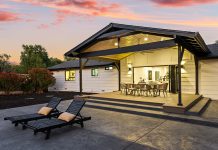July 1 is the start of a new fiscal year for local governments. This is when the county, cities and schools start spending new tax money based on recently approved 2016-2017 budgets. All these budgets tend to launch with the same conclusions: there is never enough tax revenue; there are too many unmet needs; employee and pension costs keep going up; and everything could be solved if we only agreed to raise new taxes and vote for more long term debt bonds.
Asking voters to approve new taxes has never been more popular. It seems the more generous taxpayers become, the more gets asked of them (us). Only the worst of recessions or unchecked fiscal disasters hold back the wave of new tax initiatives at the ballot box.
This year, the County of Sonoma is considering an increase in sales tax to pay for county park maintenance. A dedicated road tax is also being discussed and the county Board of Supervisors is in favor increasing the bed tax on tourists. That’s a lot of new taxes, especially during a period of good economic growth, rising property values and record low unemployment.
Do we really need so many new taxes? If we’re not fixing our roads, reducing library hours and deferring millions in pension debt for future years, where is all the money going?
Local elected officials have been doing a lousy job of supporting their requests for new taxes in recent years. Last week, the Sonoma County Civil Grand Jury came to the same conclusion. The citizens’ panel, in its annual report, said it was “deeply concerned by the fact that citizens will be asked to approve new taxation without a clear picture of how the County allocates available funds and accounts for reserves.” The panel “strongly urged” all local governments “to make every effort to provide the financial transparency that is a necessary prerequisite to authorizing further taxation.”
We couldn’t agree more. At the risk of more delayed road repair, less park maintenance and fewer government employee pay raises, we say voters should continue to say no to all new taxes until our local elected officials come forward with a better story — and fewer excuses.
In one of the Grand Jury’s investigations this year they found that $52 million in special district spending went mostly unaudited. The jury could not find a complete list of the 45 special fire, sewer, healthcare and recreation districts, even when they asked the county auditor. “Many special districts lack consistent County oversight and supervision” and do not comply with state open meeting, public records and audit requirements under California law, the jury found.
The overall picture drawn by several reports in the annual Grand Jury Final Report shows many instances where local governments apparently don’t know how much tax money they actually have — and where they spent it.
To be balanced, the Grand Jury said it was “consistently impressed by the dedication and professionalism of the civil servants and elected officials” with whom they met.
We’re sorry, but we don’t see how that computes. Somebody — maybe lots of somebodies — doesn’t have their eye on the ball. We’re talking about a $1.65 billion county government budget, and millions more in local city and school budgets. That’s a lot of room for small errors and oversights that could easily add up to the millions some elected officials now say they want to squeeze out of taxpayers.
We are very grateful for the Grand Jury’s call for “financial transparency.” The 18-member panel took a full year to reach their conclusions.
Instead of spending time on new tax initiatives, local elected officials need to do something different. They need to show the public they know how to balance a checkbook.
— Rollie Atkinson








